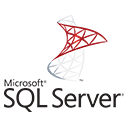Automate the mundane

ETL Simplified
Sequence empowers users to create multi-application extract-transform-load workflows with a single configuration. Technicians no longer need to learn multiple scripting or programming languages, or trawl through API documentation for the applications they want to automate.

Data Driven
Automating forensic and ediscovery workflows is all about wrangling data between systems. Sequence makes it easy with entities and schemas. Use schemas to define what your data should look like once (and even get help to do that), and let Sequence handle the rest.

Easy to Use
Automate applications using the Sequence Configuration Language, simple and intuitive to pick up, yet powerful enough to automate complex workflows. We took YAML as a baseline and supercharged it with features from popular programming languages.

Extensible
Use the existing connector ecosystem with steps for popular data formats and forensic/ediscovery applications, automatically generate steps from any OpenAPI endpoint using the REST connector, or if that's not enough, build your own connectors for any application using the Sequence Core SDK.

Defensible
Make your workflows predictable and repeatable through automation. Enhance your ability to maintain chain of custody by standardising and version controlling workflows. Improve auditability with an extensive set of logging providers that can log to file, database, or the Elastic stack.
Sequence Configuration Language
Step
Sequence
Connector
- Intro
- Autopsy
- REST
- Schemas
# A sequence to remove duplicate rows from a CSV file
#
# SCL steps start with a '-' or a '|'.
# | means take the output from the previous step
# as input to the next step
- ReadFromFile Path: 'C:/data.csv'
| ConvertCSVToEntity
| RemoveDuplicates
| ConvertEntityToCSV
| WriteToFile Path: 'C:/data-distinct.csv'











